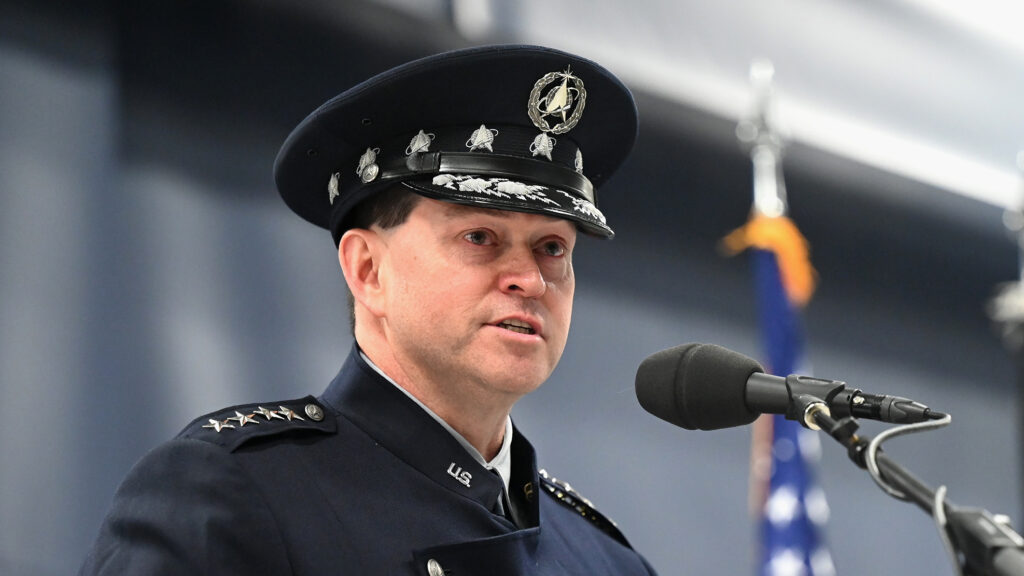THERESA HITCHENS

WASHINGTON — The new head of the Space Force, Gen. Chance Saltzman, says that the clearest take-away so far from the ongoing war in Ukraine is that space systems are key to winning current and future conflicts.
“I’m a history major. So, I don’t like to draw too many lessons learned while an event like this is unfolding, but I think it would be fair to say that what we’re observing is the criticality of space in modern warfare,” he told the Space Force Association in an online interview yesterday evening.
Noting that there are a “number of different lenses” for analyzing the situation, Saltzman ticked off a handful of observations that he said the Space Force will absorb as it continues to work on developing operational concepts, tactics and training for Guardians.
“The ability to deny single satellite capabilities became very obvious very early in this conflict. The ability to cyber attack ground networks that facilitate space capabilities became very obvious. Those vulnerabilities became obvious early in the conflict,” he said.
“And then the commercial augmentation of space capabilities showed its merits,” he said.
Saltzman pointed in particular to the fact that SpaceX’s Starlink communications constellation has been “much tougher to target” due to the large number of satellites and their disaggregation across low Earth orbit. “It’s proven out to be a more resilient architecture.”
The Space Force, he stressed, intends to learn from all those insights.
“We’re gonna take all that in. Space is critical. Adversaries are going to attack space. It’s critical on the ground as well as in space. And a disaggregated architecture becomes more resilient and that matters in terms of creating combat capability.”
In addition, Saltzman said some of Russia’s failures also can serve as cautionary tales for the service going forward.
“Another observation from Ukraine is: you’ve got on paper, a very capable Russian military. But they didn’t necessarily have the training. They didn’t necessarily have the operational concepts for multi-domain operations. They didn’t have [command and control] structures and sustainment capability. And they’re coming up a little short,” he said.
Thus, he explained, a key focus for the Space Force going forward is “making sure that not only do we have the systems to do the mission, but that our operators have the training the experience, and we have validated tactics that actually enable those capabilities. And so now we have to build the infrastructure and the processes and procedures to make sure they’ve got what they need.”
Finally, Saltzman said that the war in Ukraine has brought home the power of international cooperation and coalition building.
“There’s a tremendous amount of power and that kind of international resolve, again, as we’re seeing in Ukraine, and the deterrence that that kind of unity can create,” he said.
Not only are international partners “critical” to successful deterrence, but their capabilities can also help the Space Force fill gaps in its own capabilities created by “the fact that we can’t afford all the capacity in space that we’re going to need.
“So let’s partner with other nations who also have space capacity, and let’s share and let’s mission share, and let’s work together so that if we’re buying something they don’t have to; if they’re buying something, we don’t have to. We can share data, we can share missions, and do this jointly as a coalition, rather than trying to think that the US can buy organically all the capability,” Saltzman enthused. “That means that’s going to make us more resilient, because we’re going to spread those missions out across multiple nations, multiple companies and get a better result.”
No comments:
Post a Comment